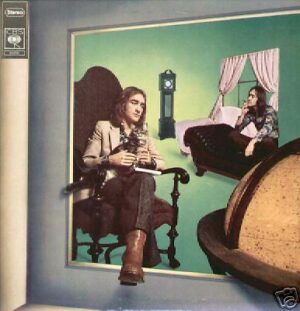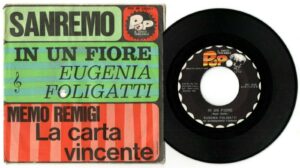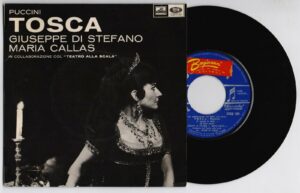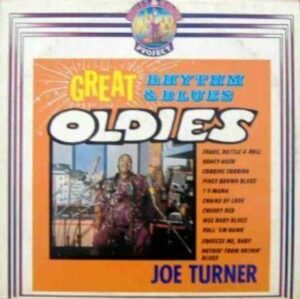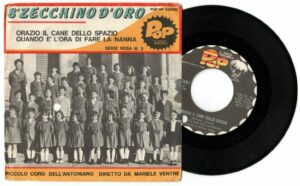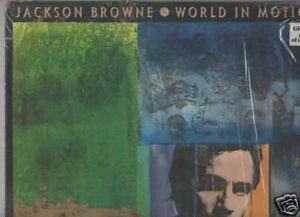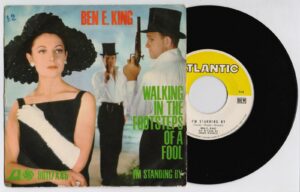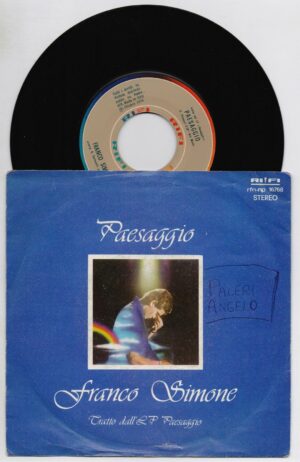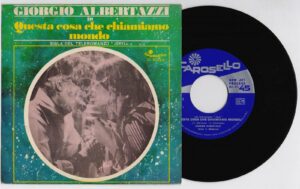Description
PREMESSA: LA SUPERIORITA’ DELLA MUSICA SU VINILE E’ ANCOR OGGI SANCITA, NOTORIA ED EVIDENTE. NON TANTO DA UN PUNTO DI VISTA DI RESA, QUALITA’ E PULIZIA DEL SUONO, TANTOMENO DA QUELLO DEL RIMPIANTO RETROSPETTIVO E NOSTALGICO , MA SOPRATTUTTO DA QUELLO PIU’ PALPABILE ED INOPPUGNABILE DELL’ ESSENZA, DELL’ ANIMA E DELLA SUBLIMAZIONE CREATIVA. IL DISCO IN VINILE HA PULSAZIONE ARTISTICA, PASSIONE ARMONICA E SPLENDORE GRAFICO , E’ PIACEVOLE DA OSSERVARE E DA TENERE IN MANO, RISPLENDE, PROFUMA E VIBRA DI VITA, DI EMOZIONE E DI SENSIBILITA’. E’ TUTTO QUELLO CHE NON E’ E NON POTRA’ MAI ESSERE IL CD, CHE AL CONTRARIO E’ SOLO UN OGGETTO MERAMENTE COMMERCIALE, POVERO, ARIDO, CINICO, STERILE ED ORWELLIANO, UNA DEGENERAZIONE INDUSTRIALE SCHIZOFRENICA E NECROFILA, LA DESOLANTE SOLUZIONE FINALE DELL’ AVIDITA’ DEL MERCATO E DELL’ ARROGANZA DEI DISCOGRAFICI .
MEMPHIS INTERNATIONAL EDITION
blues
Disco LP 33 giri , 1985, Ariola eurodisc , 206 722 , Germany , red vinyl/vinile rosso
ECCELLENTI CONDIZIONI, vinyl ex++/NM , cover ex++/NM.
Opulenta e viscerale compilation di memphis blues di parrocchia MCS, in lussureggiante, facinoroso e propizio vinile rosso
- Etichetta: Ariola eurodisc
- Catalogo: 206 722 – 000
- Data di pubblicazione: 1985
- Supporto:vinile 33 giri
- Tipo audio: stereo
- Dimensioni: 30 cm.
- Facciate: 2
- Gatefold / copertina apribile, red vinyl / vinile color rosso , white paper inner sleeve
Track listing
- BIG BILL BROONZY careless love
- SPECKLED RED red’s own blues
- LONNIE JOHNSON too late to cry
- CHAMPION JACK DUPREE trouble, trouble
- BIG JOE WILLIAMSON down & out (take 2)
- BROWNIE MCGEE my last suit
- MEMPHIS SLIM mean meastreatin’ blues
- OTIS SPANN riverside blues
- JOHN HENRY BARBIE early in the morning
- ARTHUR BIG BOY SPIRES 21 below zero
- SLEEPY JOHN ESTES city hall blues
- ROOSEVELT SYKES the way I feel
The Memphis blues is a style of blues music that was created in the 1920s and 1930s by Memphis-area musicians like Frank Stokes, Sleepy John Estes, Furry Lewis and Memphis Minnie. The style was popular in vaudeville and medicine shows, and was associated with Memphis’ main entertainment area, Beale Street. The history of the era is detailed in the early chapters of a 2000 book by James L. Dickerson entitled Goin’ Back to Memphis ISBN 0815410492.
In addition to guitar-based blues, jug bands, such as Gus Cannon‘s Jug Stompers and the Memphis Jug Band,
were extremely popular practitioners of Memphis blues. The jug band
style empasized the danceable, syncopated rhythms of early jazz and a range of other archaic folk styles. It was played on simple, sometimes homemade, instruments such as harmonicas, violins, mandolins, banjos, and guitars, backed by washboards, kazoo, guimbarde and jugs blown to supply the bass.
After World War II,
electric instruments became popular among Memphis blues musicians. As
African-Americans left the Mississippi Delta and other impoverished
areas of the south for urban areas, many musicians gravitated to
Memphis’ blues scene, changing the classic Memphis blues sound.
Musicians such as Howlin’ Wolf, Willie Nix, Ike Turner, and B.B.King performed on Beale Street and in West Memphis, and recorded some of the classic electric blues, rhythm and blues and rock & roll records for labels such as Sun Records. These musicians had a strong influence on later musicians in these styles, notably the early rock & rollers and rockabillies, many of whom also recorded for Sun Records. A more contemporary band, the North Mississippi Allstars, has embraced the blues tradition of Memphis and reflects many of the classic blues rhythms in their songs.
“Memphis Blues” is also the title of a song published by W.C. Handy
in 1912 . It is not the first blues published, but was an important
early blues-influenced hit. Handy based it on his earlier political
campaign song, “Mr. Crump Don’t Like It.”
The Memphis Blues Society
is the blues society for the Memphis region. Their mission is the
preservation and education of the history and culture of Memphis Blues.
They also serve as a networking facility for Memphis area blues
musicians.

